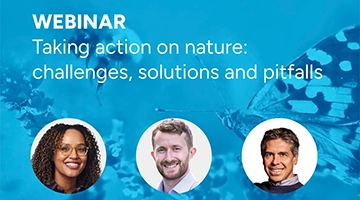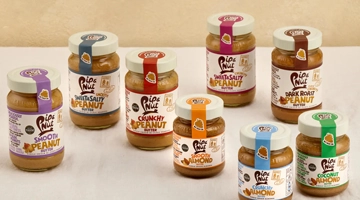 https://www.3keel.com/wp-content/uploads/2025/09/nature-webinar_feature-image.webp
200
360
Carole Scott
https://www.3keel.com/wp-content/uploads/2023/04/3keel_logo-1.png
Carole Scott2025-09-19 13:37:312025-11-04 12:28:27Webinar: taking action on nature
https://www.3keel.com/wp-content/uploads/2025/09/nature-webinar_feature-image.webp
200
360
Carole Scott
https://www.3keel.com/wp-content/uploads/2023/04/3keel_logo-1.png
Carole Scott2025-09-19 13:37:312025-11-04 12:28:27Webinar: taking action on natureCASE STUDY Walton Family Foundation
Better adoption of agriculture’s sustainability language to strengthen fisheries’ role in transforming food systems
Fisheries under-represented in strategies for climate adaptation
In recent months, the world’s spotlight has been shone to great effect on the pressures the world’s oceans are experiencing. From David Attenborough’s latest film to the attention gained by the 2025 UN Oceans Conference, important and urgent conversations are taking place that should hopefully lead to more effective action to protect our seas.
Sustainable fisheries need to be part of the action plan. Fish and seafood support millions of livelihoods and many nations are dependent on them for protein. And yet, they are rarely considered within discourse around sustainable food systems or nature-based solutions. Fisheries are under-represented as a solution to climate adaptation, food security, resilience and sustainable development. This leads to a lack of funding from the private sector and governments.
Discourse, policy and funding relating to sustainable food sourcing remain biased towards terrestrial agriculture. Recent increased momentum and focus on sustainable agriculture and ecosystem restoration is often linked to key terms such as ‘regenerative’ and ‘nature-based solutions’. To date, however, these terms have generally not been applied to include fisheries. There remains a gap in understanding best practice in fisheries management and its critical role as part of sustainable development, with language bound up in technical jargon that is difficult to understand for non-fisheries actors.

LEAD CAITLIN McCORMACK
CLIENT WALTON FAMILY FOUNDATION
Case study authors:
Livia Barreca and Florence Wiggins
“Almost half of the world depends on aquatic food for a significant amount of their daily protein. As the demand for food grows and the impacts of climate change increase the urgency for a sustainable food system, we can’t ignore the ocean.”
A healthy ocean is essential to a healthy planet
The Walton Family Foundation (WFF) is a family-led foundation. Three generations of the descendants of the founders, Sam and Helen Walton, and their spouses, work together to lead the foundation and create access to opportunity for people and communities. The foundation works in three areas: improving education, investing in the home region of north-west Arkansas, protecting rivers and oceans and the communities they support. The foundation works from the idea that a healthy ocean is essential to healthy communities and a healthy planet.
The challenge: can fisheries adopt agriculture’s language to secure greater understanding of how they support a sustainable food system?
WFF wants to develop a shared understanding of the role of fisheries in sustainable food systems. Their team turned to 3Keel to investigate how regenerative agricultural language and principles could be translated for fisheries to adopt more commonly. The project aims are:
- To build a better understanding of where terms used to describe sustainable production in terrestrial agriculture cross over with, or diverge from, fisheries.
- Identify which agricultural terms and principles have potential for adoption by fisheries practitioners.
By facilitating this uptake in common language and principles, the foundation hopes to drive more effective conversations between fisheries and agricultural funders and increase the visibility of fisheries as a key component of sustainable food supply chains.
WFF came to 3Keel’s Agriculture & Landscapes team for its combined research, stakeholder and agricultural expertise, and for our experience in both agriculture and marine sectors. We have a wealth and breadth of knowledge and practical experience in sustainable agriculture. This cuts across diverse contexts, from developing projects that reduce agricultural emissions through to advising about on-farm monitoring, reporting and verification. We also work with many of the UK’s largest retailers on sustainable fish and seafood sourcing, and act as Secretariat for the Sustainable Seafood Coalition.
“Overfishing is one of the greatest threats to ocean health, but a regenerative fishery – where fish stocks can replenish themselves and the habitats that support fish are thriving – can help restore ocean health and feed the planet.”
Starting point: research the terms
For this project, we combined our research skills with our stakeholder engagement expertise and drew on our knowledge and critical analysis of the sustainability challenges in complex production supply chains.
The first step was to research and build a detailed understanding of the extent to which terms commonly used in agriculture extend into the fisheries sector. Where there was crossover, we undertook more detailed desk research to understand the context and test out how extensively they were being used. We conducted interviews with ‘critical friends’ in fisheries-focused organisations to test our findings.
Opportunity identified: parallels exist that can increase visibility of fisheries as a key component of sustainable food production
From this initial research phase, we identified three core agricultural concepts that have potential to be used more extensively and effectively in a fisheries context: regenerative, agroecological and nature-based solutions. For each of these, we explored the parallels between agriculture and fisheries through overarching objectives and principles, key outcomes and specific practices.
We found that while the use of these key terms is still limited in a fisheries context, there is potential to increase how well and often they are used. Sustainable fisheries share common objectives with sustainable agriculture, including enhancing ecosystem services, having multi-year management cycles, prioritising long-term productivity and improving livelihoods. They also seek to achieve common outcomes.
For example, no or reduced tillage in agriculture is used to support soil health and carbon sequestration, which in fisheries is similar to the avoidance of bottom trawling to support healthy fish stocks and carbon sequestration of the seabed. Another parallel is maintaining and enhancing biodiversity to support ecosystem services, with benefits for productivity. In agriculture, this is achieved through maintaining or restoring hedgerows or wildflower meadows, providing habitat for pollinating species or natural predators of agricultural pests. In fisheries, restoration of coastal breeding grounds such as mangroves, seagrass and kelp forests can support larvae development and the resilience of fish stocks.
To illustrate where parallels can or have been drawn between sustainable fisheries and sustainable agriculture, we developed four case studies broadly aligned to each of the four key objectives we identified. Our case study on a Southern Californian fishery highlights a common objective around prioritising long-term productivity over short-term yields. In this example, a 35% reduction in fishing area resulting from Marine Protected Areas designation was compensated for by a 225% increase in total catch after six years. The case study also demonstrates the importance of supporting practitioners on the ground with appropriate financial and technical support to achieve long-term economic gains and ‘buffer’ the transition. This is another commonality between agriculture and fisheries.
Next steps: disseminating the research to leverage progress
Our report had a clear conclusion and recommendation: emphasising parallels between sustainable fisheries and sustainable agriculture provides an excellent opportunity to increase the visibility of fisheries as a key component of sustainable food sourcing and create an additional pathway for systems transformation. Exploiting this will support improved communication between fisheries and agricultural stakeholders, and ultimately a higher profile for fisheries in sustainable food funding and policy conversations.
We used the expertise of our in-house design team to ensure that our final report included visuals that bring the findings to life and that the key elements of the report are summarised in a fully-designed executive summary report. The aim is to use these to engage a wide and diverse set of stakeholders.
The Walton Family Foundation has now published the report and started to disseminate it to gain traction, using our executive summary at events and conferences to engage with key stakeholders. We have plans to co-host a webinar on the topic in Autumn 2025.
The report is a starting point for conversations and engagement that ultimately aim to raise awareness of sustainable fisheries as a vital element of sustainable food systems. Already since we produced this report, we have seen evidence of broader uptake and interest in ‘regenerative’ fisheries and there is ample opportunity to contribute to this conversation.
“3Keel brought their experience in sustainable seafood and sustainable agriculture together to help bridge the gap between seafood and land food. Their experience is helping the Foundation build a bigger tent of partners who care about feeding the planet sustainably.”
3Keel supports marine strategies
If you’d like to find out more about our marine, seafood and fisheries work, please contact Caitlin McCormack using this form or by calling the office on +44 1865 236500.





